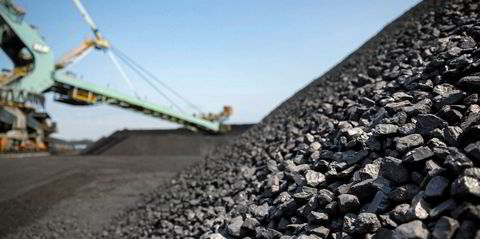BNSF Railway on Wednesday announced plans to evaluate the technological and economic viability of installing gas engines on some of its locomotives in a bid to curtail fuel costs and cut emissions.
As one of the largest consumers of diesel in the US, the development has captured the attention of shipbrokers, tanker owners and refiners that are threatened by the nation’s quest to reduce dependence on foreign oil and North America’s burgeoning natural gas market.
Market sources say the technologies that manufacturers like Wartsilla and GE have applied to dual-fuel marine engines are similar to those that would be used in power systems developed on behalf of BNSF, which boasts a fleet of nearly 7,000 locatives.
While the crude and products markets could suffer if the railway were to clear several hurdles and make the switch, observers say new and existing LNG suppliers would have an incentive to open more natural gas fuelling stations, which could bode well for the shipping industry as a whole.
The cost of conversion and the lack of LNG fuel depots are major deterrents for most shipowners and many believe the widespread use of gas won’t happen for several years, however, even though tugs, containerships and other types of tonnage have already put gas power to the test.
If BNSF pulls the trigger and other blue-chip conglomerates get on board, observers note politicians and government regulators may be more inclined to streamline the approval process for proposed LNG production facilities on land and at sea.
The railway, like shipowners and other consumers that have seen profits eroded by the high cost of diesel, has been seduced by the low price of natural gas, which is plentiful in North America and a cleaner burning alternative to most petroleum-based fuel options.
Campaigns led by the US and other nations to slow global warming have made LNG power more attractive too, observers say. In the shipping sector, operators are subject to increasingly strict emissions standards that call for the use of low-sulphur fuel oil.





